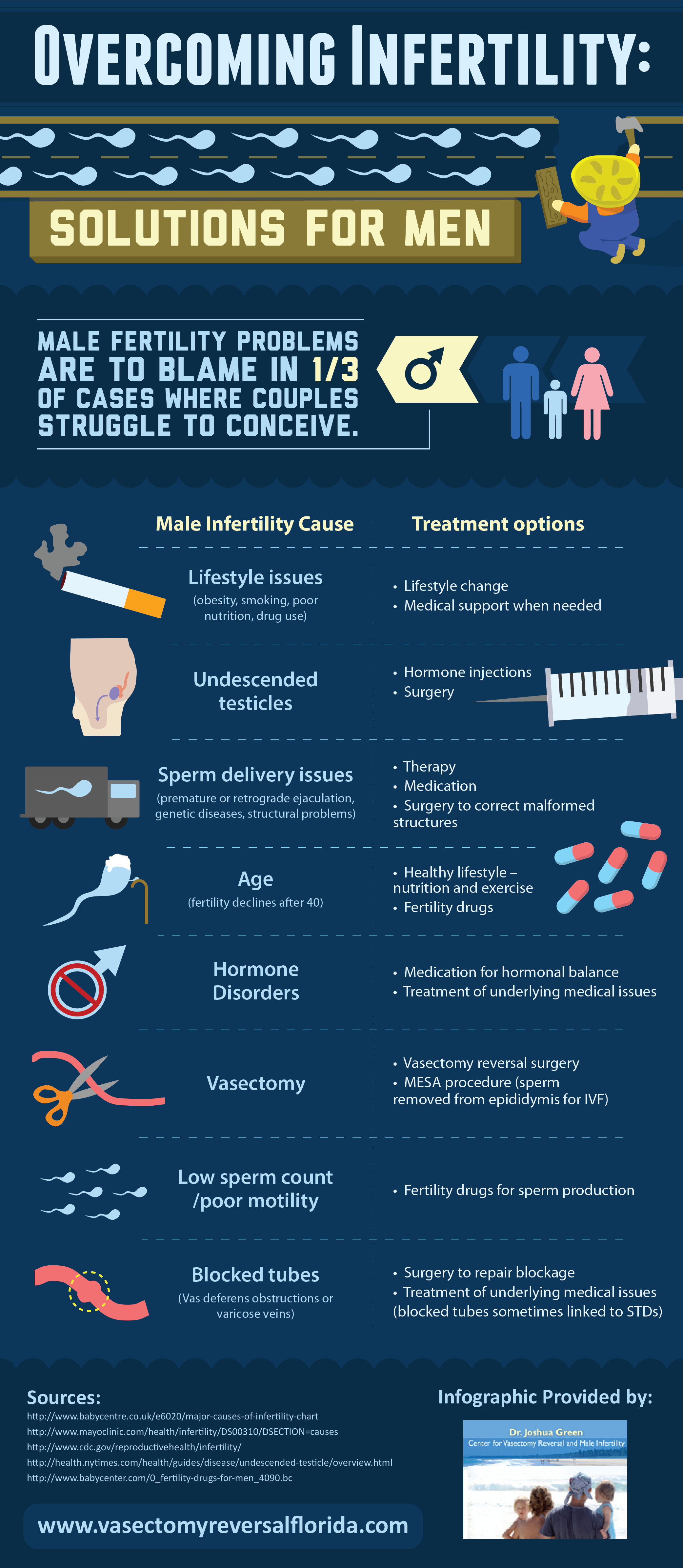A vasectomy is a medical procedure that men undergo to serve as a permanent type of birth control. However, this permanent birth control option can be reversed. A vasectomy reversal is performed in cases where a man want to reverse the prior procedure. This is accomplished by reconnecting the tubes that were snipped during the first vasectomy procedure. A vasectomy reversal is a very common procedure that is considered outpatient and does not require a lot of recovery time. However, the actual success rate of a vasectomy reversal procedure should be understood before you choose this option.
What Can Affect Vasectomy Reversal Success Rates?
The effectiveness of this procedure can be affected by many factors, but the time period between your vasectomy and the vasectomy reversal is extremely important. If a lot of time has passed between the vasectomy and the vasectomy reversal, it is possible that blockages can develop and antibodies are produced for the sperm. This means that men who undergo a vasectomy and a vasectomy reversal in short periods of time will see the highest levels of success. It should be noted that when blockage occurs the Vasectomy reversal procedure becomes more complicated and takes more time to complete. In these small cases, it might not be considered outpatient surgery.
What Should You Know Beforehand?
Before you choose this surgery, you should be aware of all the factors surrounding it. This procedure normally takes about 2 to 3 hours to complete and you will most likely return home the same day. You should only experience slight pain and you can even return to having sex within about 3 weeks.
What Are The Success Rates of a Vasectomy Reversal?
Before you opt for a vasectomy reversal, you should be aware of how effective this procedure actually is. It is important to realize that your rate of success will only get worse as time passes. The most successful vasectomy reversal procedures are done within 10 years of the initial vasectomy. Most men that undergo this procedure can expect the rate of pregnancy to be about 50%. However, you can significantly improve you rate of success by undergoing this procedure within 3 years of the vasectomy. If you wait more than 10 years too have a vasectomy reversal, you can expect success rates that are below 30%. This is due to the fluid buildup that occurs.
